Viewpoints of Executive Chef’s on the World Food Safety Day
Theme for this year is "Food Standards Save Lives". Let's see what are views on the theme from different executive chef's. Yogen Datta Executive Chef ITC Maratha Mumbai, Area Executive Chef West Region, ITC Hotel As a
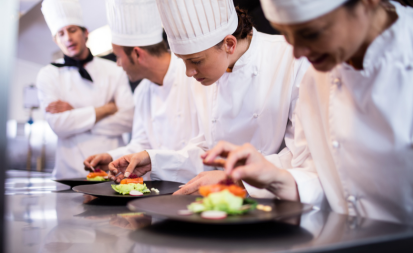
Theme for this year is “Food Standards Save Lives”. Let’s see what are views on the theme from different executive chef’s.
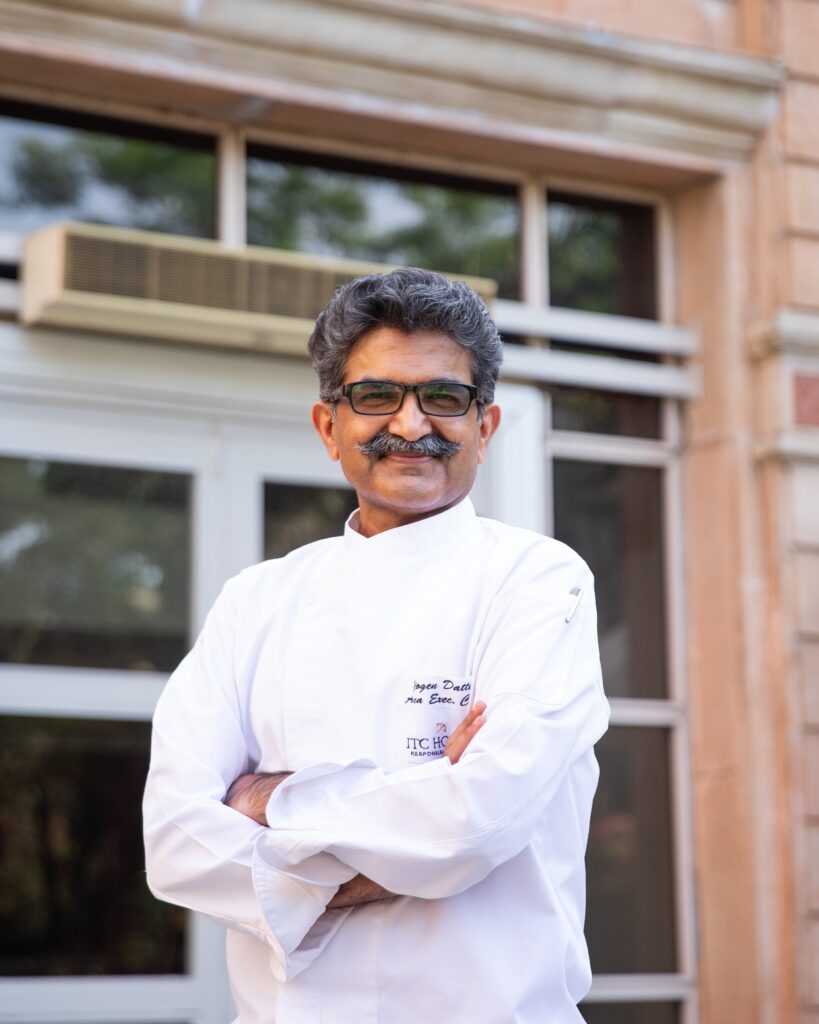
Yogen Datta
Executive Chef ITC Maratha Mumbai, Area Executive Chef West Region, ITC Hotel
As a part of ITC Hotels’ ethos of ‘Responsible Luxury’ has led to the launch of the ‘WeAssure’ programme, adopting the highest standards of health, hygiene, safety, and Infection Control Management
Chef Yogen Datta, Executive Chef ITC Maratha Mumbai, Area Executive Chef West Region, ITC Hotels, said that, “As a very few chains today, we as a part of ITC Hotels are amongst those who operate a state of art ISO 22000 Food Safety Management quality accredited Microbiology Labs which enable a systematic, preventive approach to food safety and cuisine hygiene. Our In-house Microbiology lab have all set SOP’s for testing the raw material, cooked food, the environment and more to benchmark world-class standards. We make sure a proper food temperature is always duly regulated and maintained in the kitchen.
Delivering world-class luxury experiences which address the needs of wellbeing and safety through responsible practices which are in harmony with the environment and society. As a part of ITC Hotels unique programme designed ‘WeAssure’ we are dedicatedly in collaboration with medical professionals and disinfection experts to further enhance the existing cleaning & hygiene protocols.
We adopt the Choose Wisely program by World Wild Fund WWF-India, in which the menu with ‘Choose Wisely’, classifies fish using a traffic light rating system of red, orange and green, which helps the guest to choose.”
Mani Mohan Pathak
Executive Chef, Pilibhit House, Haridwar – IHCL SeleQtions
“Food Standards are imperative and save lives.” As members of the food industry, it is our primary responsibility and role to encourage, promote, guide, adopt, inspire and raise awareness regarding the production, manufacturing, and supply of safe and nutritious food to consumers. Since food serves as fuel for our bodies, ensuring good food translates to maintaining good health is important. Looking at the food production journey from farm to fork, many tangible and intangible elements can contaminate our food at multiple levels. Be it soil, water or use of strong fertilisers to fulfill the supply and demand chain. Further, improper storing, over cooking or wastage of food are some of other elements that can affect.
Now, the fashionable food industry needs to encourage sustainable production and consumption practices and involve practices such as organic farming, poultry farming, and cattle farming, among others. Embracing these will surely help in maintaining food safety standards and reduce food borne illness to a great extent.
Let us all strive to grow healthy, feed healthy, and live healthy lives

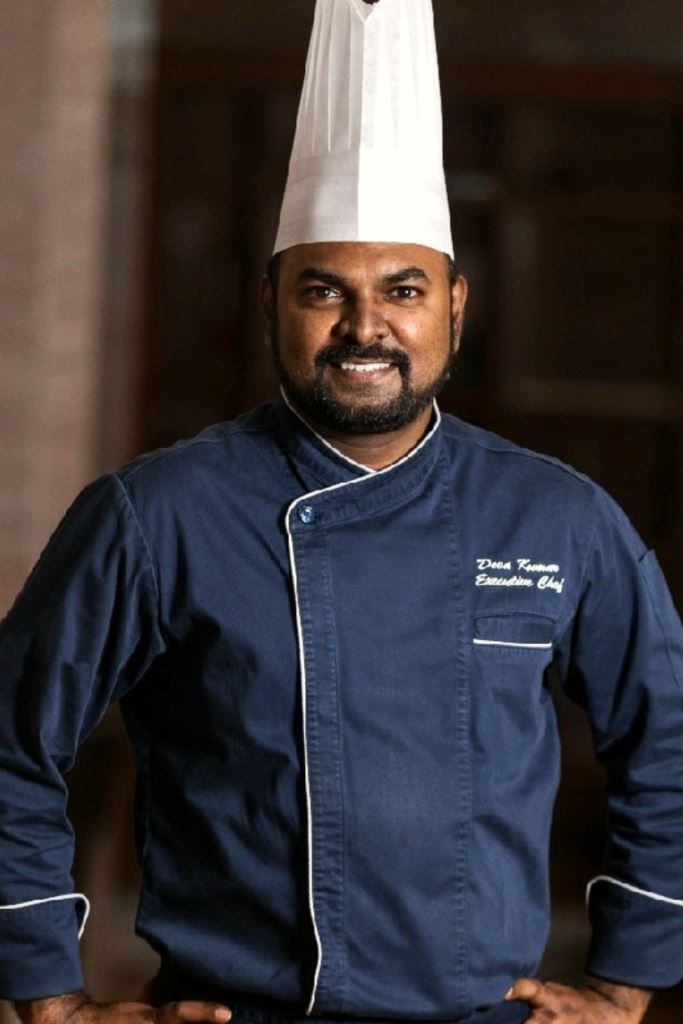
Deva Kumar
Executive Chef, Sheraton Grand Chennai Resort & Spa
Safeguarding Food Safety for a Healthier World
On the occasion of World Food Safety Day, we at Sheraton Grand Chennai Resort & Spa join the global community in emphasizing the critical importance of ensuring food safety for a healthier world. This annual observance serves as a powerful reminder that access to safe and nutritious food is not only a basic human right but a fundamental prerequisite for good health and well-being.
As the hospitality industry continuities to grow and we commit ourselves to excellence, we recognize our responsibility to prioritize food safety at every stage of our operations. We firmly believe that by upholding the highest standards of food safety, we contribute to the well-being of our guests, the sustainability of our industry, and the overall health of our communities.
At Sheraton Grand Chennai Resort & Spa, we have implemented comprehensive food safety protocols to guarantee the quality and integrity of the meals we serve. Our dedicated team of culinary professionals undergoes rigorous training in food handling, storage, and hygiene practices to ensure the highest level of safety for our guests.
From the moment ingredients are sourced, we prioritize the freshness and quality of our food. We work closely with trusted suppliers who adhere to strict food safety standards, ensuring that the produce we use is safe, traceable, and responsibly sourced. By fostering transparent relationships with our suppliers, we ensure that our guests can enjoy their meals with confidence, knowing that every ingredient has undergone thorough scrutiny.
In alignment with the principles of World Food Safety Day, we are proud to showcase our Chefs Garden at Sheraton Grand Chennai Resort & Spa as a shining example of our commitment to food safety and sustainability. Here, our skilled chefs cultivate an assortment of herbs, vegetables, and spices using organic farming practices. The Chefs Garden contributes to the overall food safety standards upheld at our resort. With this dedication to freshness and meticulous attention to detail, We serve our guests wholesome, delicious, and safe culinary experiences that are truly farm-to-table.
Moreover, we adhere to a strict no-storage policy, ensuring that no ingredient remains in our inventory beyond a specified timeframe. This commitment guarantees the utmost freshness in
every dish we create, providing our guests with a dining experience that is unparalleled in taste and quality. By prioritizing freshness and eliminating prolonged storage, we maintain the integrity of our ingredients, allowing their natural flavors to shine through in each and every bite.
As we celebrate World Food Safety Day, let us reaffirm our dedication to safeguarding food safety for a healthier future. Together, we can create a world where safe, nutritious, and delicious meals are accessible to all, promoting the well-being and prosperity of our global community.
“As chefs, we take great pride in our role as guardians of food safety. We are committed to upholding the highest standards throughout our culinary operations to ensure the well-being of our guests, the sustainability of our industry, and the overall health of our communities. From farm-to-table freshness to rigorous protocols, we are dedicated to serving our guests wholesome and safe dining experiences. On World Food Safety Day, we reaffirm our commitment to ensuring a healthier future through responsible and sustainable practices” Said – Deva Kumar Executive Chef, Sheraton Grand Chennai Resort & Spa
Karam Dogra
Executive Chef, Sheraton Grand Palace Indore
World Food Safety Day Highlights the Vital Role of Food Standards in Ensuring Safety and Quality and is celebrated annually, serves as a global platform to draw attention and inspire action towards preventing, detecting, and managing foodborne risks. By prioritizing food safety, we contribute to food security, human health, economic prosperity, agricultural production, market access, tourism, and sustainable development. This year’s theme, “Food standards save lives,” emphasizes the critical role of established food safety practices and standards in safeguarding consumers and fostering equitable trade in food.
We all know that the Food standards play a pivotal role in ensuring that the food we consume is safe, wholesome, and of high quality. The Food Safety and Standards Authority of India (FSSAI) has been established to lay down science-based standards for food articles, regulate their manufacturing, storage, distribution, sale, and import, thereby ensuring the availability of safe and nutritious food for human consumption.
World Food Safety Day aims to encourage all stakeholders, from producers to consumers, to adopt and adhere to food safety standards throughout the food supply chain. By doing so, we can significantly reduce the incidence of foodborne illnesses, which are largely preventable. Food standards provide essential guidance to farmers and food processors on maintaining hygiene during food handling. They establish maximum levels for additives, contaminants, pesticide residues, and veterinary drugs to ensure their safe consumption. Standards also outline safe measurement, packaging, and transportation practices. Consumers benefit from standards through nutrition and allergen labeling, allowing them to make informed choices about the products they consume.
“Food safety standards protect everyone’s life and are key to ensuring safety and quality and also provides necessary nutrients but also promotes human development.”
On this World Food Safety Day, let us recognize and appreciate the importance of food standards worldwide in upholding consumer safety and facilitating a fair and secure global food trade. By adhering to and expecting high food safety standards, we can collectively promote the well-being of individuals and communities, as well as the sustainable growth of the food industry and can contribute towards the theme of Food Standards Save Lives.
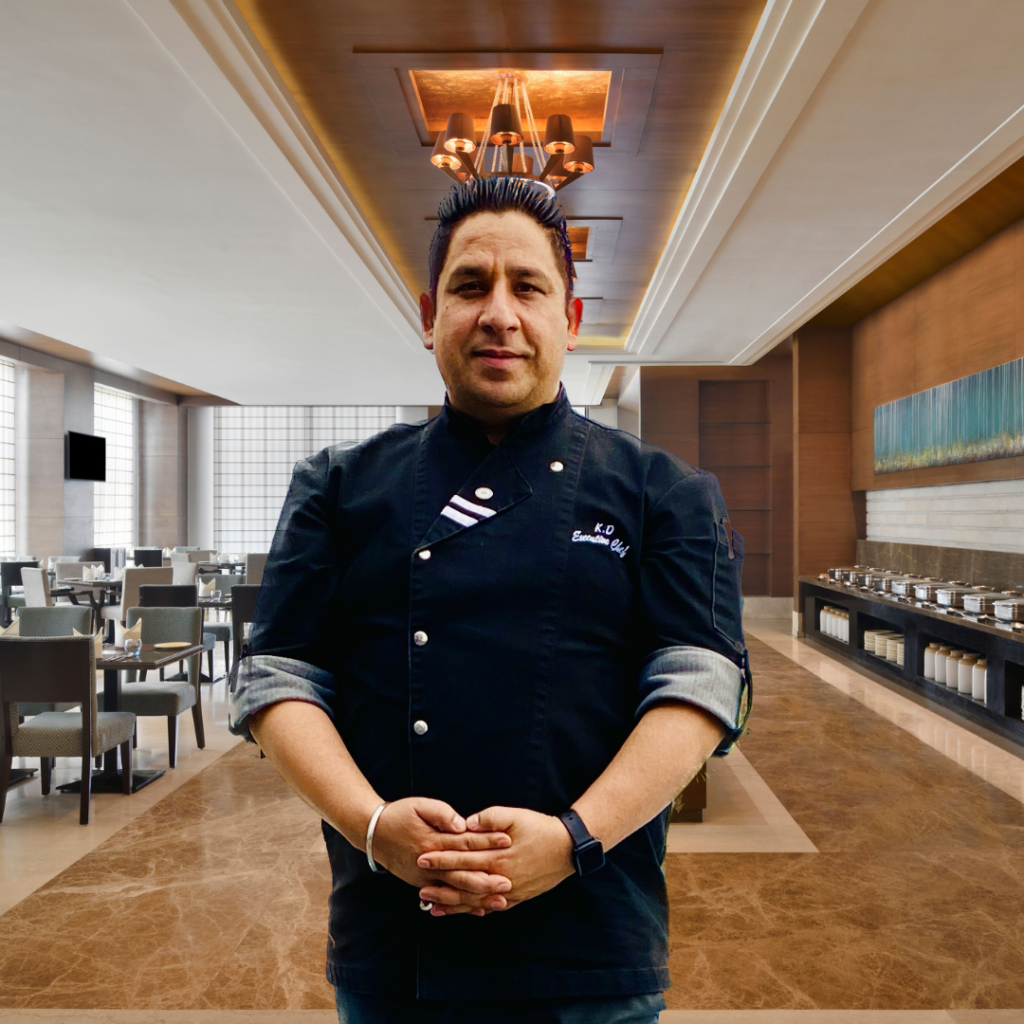
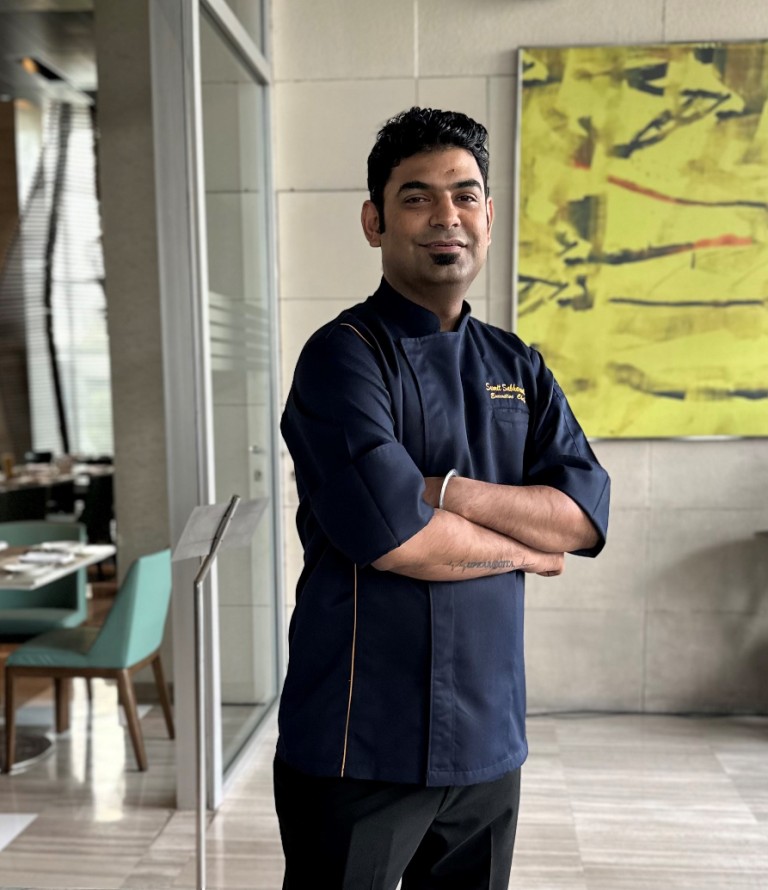
Sumit Sabharwal
Executive Chef, Holiday Inn New Delhi International Hotel
“It is undeniable that food security cannot exist without ensuring food safety.” Therefore, it is of utmost importance to adhere to the established standards of food safety and hygiene within the hotel. By following these practices, we can ensure that the food served is not only safe to consume but also retains its nutritional value.
The responsibility of maintaining food safety lies with the chef, who must ensure that all team members are well-trained and committed to upholding the hotel’s food safety and hygiene standards. This commitment extends to both guests and employees, as safe food consumption enables adults to lead active and healthy lives while promoting the optimal development of children.
In the case of high-end establishments like ours, guests choose to pay a premium for their dining experience with the confidence that the food they are enjoying is prepared under stringent food safety protocols. This robust process chain guarantees that their investment in the culinary experience aligns with their expectations of impeccable hygiene and safety.
In conclusion, it is essential never to compromise on the standard operating procedures (SOPs) established for food safety and hygiene. By upholding these protocols, we can consistently deliver a dining experience that prioritizes the well-being of our valued guests.
Chef Gobu Kumar
Head Chef of Crowne Plaza Chennai Adyar Park
Chef Gobu Kumar, the Head Chef of Crowne Plaza Chennai Adyar Park, emphasizes the critical role of food standards in ensuring the safety and well-being of guests, as World Food Safety Day approaches on June 7th. This significant occasion provides an opportunity to raise awareness about the importance of maintaining high food safety standards on a global scale.
In the hospitality industry, food safety takes precedence, and Chef Gobu Kumar takes great pride in the implementation of rigorous food safety practices at Crowne Plaza Chennai Adyar Park. By adhering to global food safety standards, the Chef and his team prioritize guest safety and strive to deliver a memorable dining experience.
The significance of food safety cannot be understated, as millions of people worldwide suffer from foodborne illnesses annually, leading to severe health consequences and, tragically, loss of life. To prevent such incidents and safeguard guest health, Chef Gobu and his team have established comprehensive food safety management systems that encompass every aspect of their operations.
Crowne Plaza Chennai Adyar Park maintains strict food safety protocols, from the careful selection of fresh ingredients on a daily basis, to the proper storage, preparation, and serving of meals. Hygiene and safety are paramount throughout the entire process. Chef Gobu Kumar places great importance on staff training and education to maintain impeccable food safety practices. All team members undergo comprehensive training in proper food handling, personal hygiene, cross-contamination prevention, and allergen management. Equipped with this knowledge and skillset, the staff at Crowne Plaza Chennai Adyar Park is well-prepared to handle food safely and mitigate potential risks.
“In addition to internal measures, the management of Crowne Plaza collaborates closely with regulatory authorities and participates in regular audits such as ISO 2001, FSSAI, HACCP to ensure compliance with food safety regulations. Also, we have cleared these audits which we conduct quarterly and yearly once. By staying informed about the latest developments and implementing the best practices, Chef we continually improves processes to provide the safest dining experience for guests, says Chef Gobu Kumar.
World Food Safety Day serves as a reminder to prioritize food safety in daily life. It is the collective responsibility of individuals, businesses, and governments to promote and uphold food safety standards. We at Crowne Plaza Chennai Adyar Park, take immense pride in our commitment to food safety. On this World Food Safety Day, Chef Gobu Kumar urges everyone to recognize the significance of food standards and join hands in creating a safer and healthier food environment for all. Together, they can make a difference and ensure that “Food Standards Save Lives.”
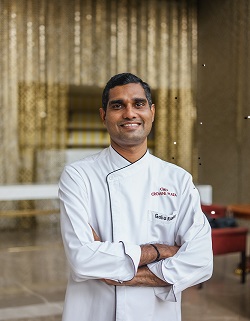
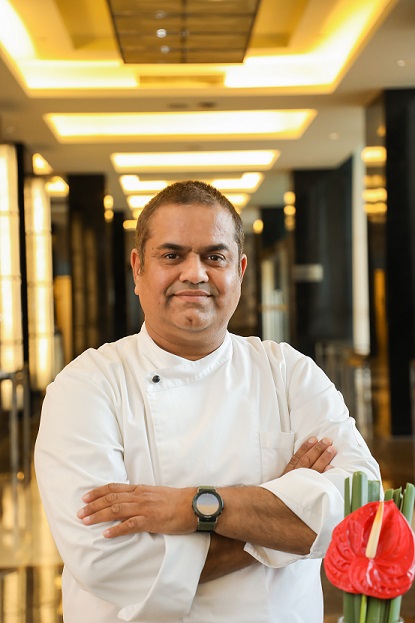
Gaurav Prasher
Executive Chef, Crowne Plaza Jaipur
Safety of the guests and patrons is our first priority. We at Crowne Plaza Jaipur have multiple standards and runs levels of tests and checks to ensure the food that we serve to our guests not only tastes good but is also the right kind. The producer includes random hand swabs, surface swabs, detailed analysis of ingredients, temperature checks and many more. Our hygiene experts takes multiple rounds throughout the day to monitor the standards and ensure the food preparation is efficient enough. As the theme says, “Food Standards Save Lives”.
Siddhartha Sankar Sarmah
Executive Chef, Radisson Blu, Indore
“Food Standards Saves Lives” – this year’s theme emphasizes the fact that food standards are essential to safeguard lives and reduce the risk of food contamination.
As a chef, I strongly believe in this theme, as food standards play a pivotal role in ensuring the safety, quality, and integrity of the food we prepare and serve to our guests/consumers. By following and adhering to the standards, we can prevent foodborne illnesses and minimize the risk of contamination. Proper food handling, storage, and preparation techniques are essential in safeguarding the well-being of our guests. Adhering to food standards ensures that our meals are safe, wholesome, and free from harmful contaminants.
Food standards act as a benchmark for us to continuously improve and innovate in our culinary endeavors. Standards guide us in selecting high-quality ingredients, maintaining proper hygiene practices, and following standardized cooking techniques. This ensures that our dishes are safe, consistently delicious, and of a high standard.
Commercial food establishments should follow strict food standards for safety and customer satisfaction. FIFO (first in first out) and LIFO (last in first out) are the benchmarks for expiry-related products of perishable as well as dry items. Vegetables need to be washed in the receiving area itself. Separation of vegetables, dairy, poultry, seafood, red meats as well as dry items
are expected as per FSSAI in India. The process and cooking of these items also have standard specifications. ISO 2022:2018 is the golden benchmark for all food operating outlets, which always says prevention is always better than cure. Unhygienic conditions can lead to serious health problems in the masses.
Furthermore, food standards contribute to building trust and maintaining a good reputation in the culinary world. Customers expect that the food they consume meets certain safety and quality standards when they visit a restaurant. By consistently meeting and exceeding these standards, we establish trust with our customers. This trust leads to customer loyalty and positive word-of-mouth recommendations, which are vital for the success and longevity of any food establishment.
In conclusion, as a chef, I firmly believe that food standards are fundamental to our profession. They are essential for ensuring public health, building trust, maintaining consistency, and fulfilling our professional responsibility. By adhering to food standards, we save lives and elevate the culinary experience for our customers, creating a healthier and more enjoyable dining environment.

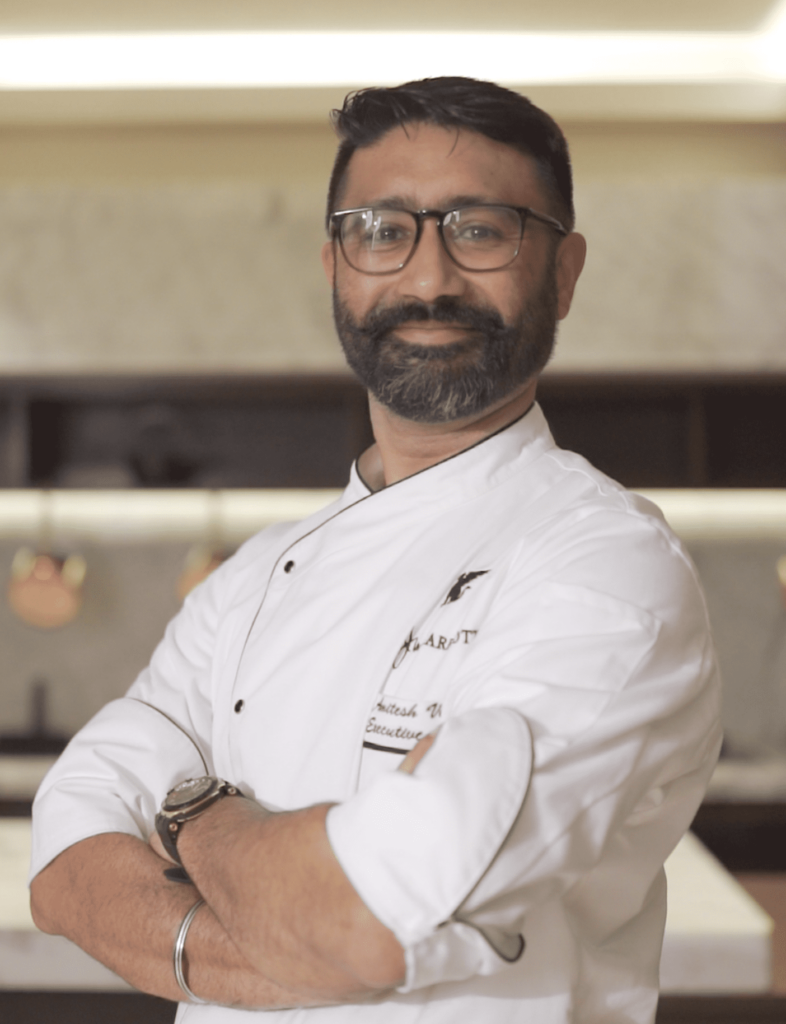
Amitesh Virdi
Executive Chef, JW Marriott Mussoorie Walnut Grove Resort & Spa
As a resort, JW Marriott Mussoorie Walnut Grove Resort & Spa adheres to strict hygiene protocols, temperature control measures, allergen training, and quality control of fresh produce, and the hotel and restaurants prioritize the well-being of their guests. Additionally, waste reduction and management practices are implemented to minimize food waste and ensure sustainability.
Stringent Hygiene Protocols: Kitchen staff strictly adhere to hygiene protocols, including the use of gloves when handling ready-to-eat foods. Additionally, standard procedures are followed to segregate vegetarian and non-vegetarian foods, ensuring separate chopping boards, knives, containers, and storage areas. Regular training is provided to kitchen and service associates to reinforce proper handwashing procedures and food handling techniques.
Temperature Control: To maintain food safety, temperature monitoring is conducted at various stages of food preparation. This includes recording cooking temperatures, reheating temperatures, cool-down temperatures, hot and cold holding temperatures, as well as twice-daily temperature checks of refrigerators and freezers. These measures ensure that food is cooked, stored, and served at appropriate temperatures, minimizing the risk of bacterial growth.
Allergen Awareness and Training: Recognizing the importance of allergen safety, all kitchen and service associates undergo allergen training. This ensures they are well-informed about common allergens, cross-contamination risks, and appropriate handling procedures. By being knowledgeable about allergens, staff can provide accurate information to guests and prevent allergic reactions.
Food Handling Certification: Managers across various departments, including kitchen, service, engineering, kitchen stewarding, and events, are required to complete a food handling certification course. This comprehensive training equips them with the necessary knowledge and skills to maintain hygiene and uphold food safety standards.
Quality Control of Fresh Produce: The hospitality industry places great emphasis on the quality of fresh produce. Upon receiving supplies, the produce is carefully inspected for ripeness, size, weight, texture, and smell. It is then washed in a vegetable washing machine, dried, and transported to the kitchen for storage. Perforated baskets are used for storage, ensuring proper air circulation in refrigerated areas. Before use, the produce is washed and sanitized again to eliminate any potential contaminants.
Waste Reduction and Management: To minimize food waste, standard recipes are followed, ensuring precise measurements during food preparation. All associates receive training on recipe standardization to optimize ingredient usage. Kitchen staff are encouraged to recycle trimmings for use in other recipes, reducing overall waste. Garbage weighing and recording are conducted daily, enabling close scrutiny of waste to identify areas for improvement. Refrigerator temperatures are recorded twice a day to maintain optimal storage conditions, while proper cool-down procedures and temperature monitoring prevent spoilage of hot and cold foods on the buffet.
By continuously implementing these measures, JW Marriott Mussoorie Walnut Grove Resort & Spa demonstrates its dedication to providing safe, high-quality dining experiences.
Gaurav Lavania
Executive Chef, ITC Narmada
ITC Narmada is not just admired for its curated experiences in luxury hospitality; it is equally sought-after for the culinary prowess its chefs and signature restaurants showcase, by dishing out the most delectable epicurean offerings with nuanced flavours from world-over.
Quality and hygiene are the cornerstones of our hospitality practices. ITC Narmada has received a five-star rating – the highest benchmark for hygiene parametres by the Food Safety and Standards Authority of India (FSSAI). ITC Narmada has also applied for the Food Safety certification ISO 22000:2018, to ensure continual improvement and implementation of safe food practices.
Its robust sanitation programme comes with a holistic area hygiene, equipment cleanliness and sanitation practices at the unit where food is prepared and handled. Our team ensures the use of food-grade certified cleaning and sanitising agents for contact surfaces. In fact, to ensure the freshness, nutritive value and quality of food remains intact, the food is kept as per standard, recommended temperatures throughout the food chain from sourcing to serving.
Our team of culinary experts in the Food and Beverage (F&B) division is dedicated to adhering to the highest quality benchmarks, assuring that the ingredients are sourced from certified vendors. The food, water, raw material, packaged food and swab (hand/ equipment/ work areas) samples are duly tested in external laboratories certified and accredited by the National Accreditation Board for testing and calibration Laboratories (NABL), in the interest of safety of our patrons. Our internal food, water, and swab testing laboratory conducts sample collection in presence of technical experts.
ITC Narmada also implements an all-inclusive allergen control and management programme. Awareness, transparent communication with our guests, and safety practices are the key pillars of this programme. We create awareness by displaying a list of allergens in conveniently accessible areas for our patrons. The team at ITC Narmada ensures a transparent communication practice with in-house and walk-in guests about their food restrictions and allergies. As a practice, our chefs and F&B experts use separate utensils for preparing meals for patrons who have allergies to certain food items. The core hygiene practice of sanitising the workstation before and after the preparation and service of the meal is ensured.
A highly process-oriented regime for food sourcing, storage, preparation and management is followed at ITC Narmada, which includes diligent food safety and hygiene rounds of cooking stations, food handling and storage areas to ensure adoption of best practices. We believe in the right capacity building through external and internal training conducted for our team of F&B experts to reiterate our commitment to food safety standards. Alongside crafting the best culinary experiences for our patrons, ITC Narmada is committed to the highest standards and practices to ensure food safety.

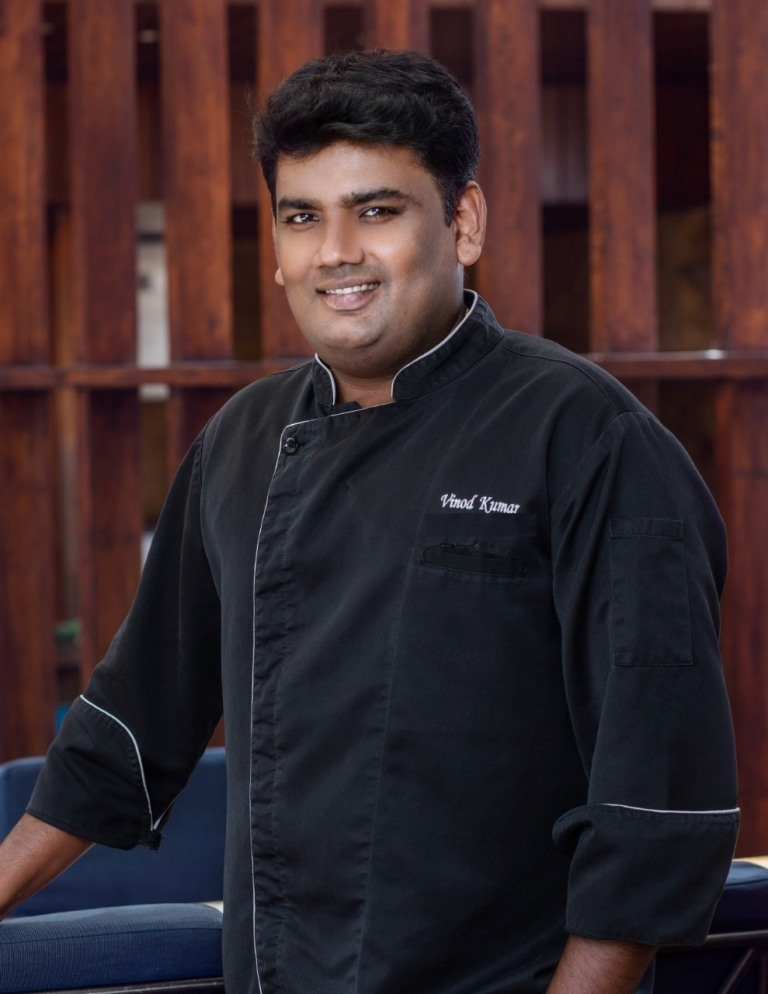
Vinothkumar Jeyaprakash
Executive Chef, DoubleTree Suites by Hilton Bangalore
Food Standard plays major role in everyone’s life, creating awareness on food safety makes a difference. Being a chef it’s my responsibility to serve safe food for my customers. In day-to-day operation, everyone can take an active role in preventing foodborne illness.
We hoteliers follow the below measures to maintaining our food standard.
1. Food Safety starts with personal hygiene of a person. You should probably wash your hands when you enter the kitchen and food preparation areas.
2. Cleaned your kitchenware and cooked your food to the right temperature as per HACCP standard (Hazard Analysis Critical Control Point)
3. You Should probably read food packaging labels to see what ingredients the product contains allergens etc.
4. Every touch point involved in growing, processing, packaging, distributing and preparing your food in the right way so that you can enjoy it without falling ill.
5. Food safety standards will be monitored and reordered from receiving of good to storage, preparation, cooking and serving to the guest.
6. Any place of work needs to ensure that Team Members can eat safe and healthy meals while at work. This means setting the policies to ensure safety standards are being implemented and followed, ensuring access to handwashing facilities, clean places to eat, cook and appropriate storage facilities for food.
7. Food safety is a shared responsibility, involving the whole supply chain, from producers to consumers. In this context, most foodborne disease is preventable with proper food handling and education at all levels.
8. Food safety practices, which are transparently available in the form of standards.
Sandeep Panwar
Executive Chef, DoubleTree by Hilton Gurugram Baani Square
“Food Standards Save Lives” being the theme of World Food Safety Day 2023 draws attention to foodborne risks and its preventive measures. In the dynamic world of hospitality, the importance and necessity of food safety cannot be overstated. With guests visiting hotels & restaurants for dining, ensuring high standards of food safety becomes our fundamental responsibility.
Following rigorous food safety practices such as maintaining personal hygiene and clean surroundings, proper storage and handling of ingredients to avoid contamination, regular sanitization, cooking at the right temperature and regular training programs for staff members on food safety practices not only safeguard the well-being of guests and mitigate health risks but also uphold brand reputation.
At DoubleTree by Hilton Gurugram Baani Square, guest well-being is of utmost importance and we leave no stone unturned in delivering a safe and healthy dining experience.
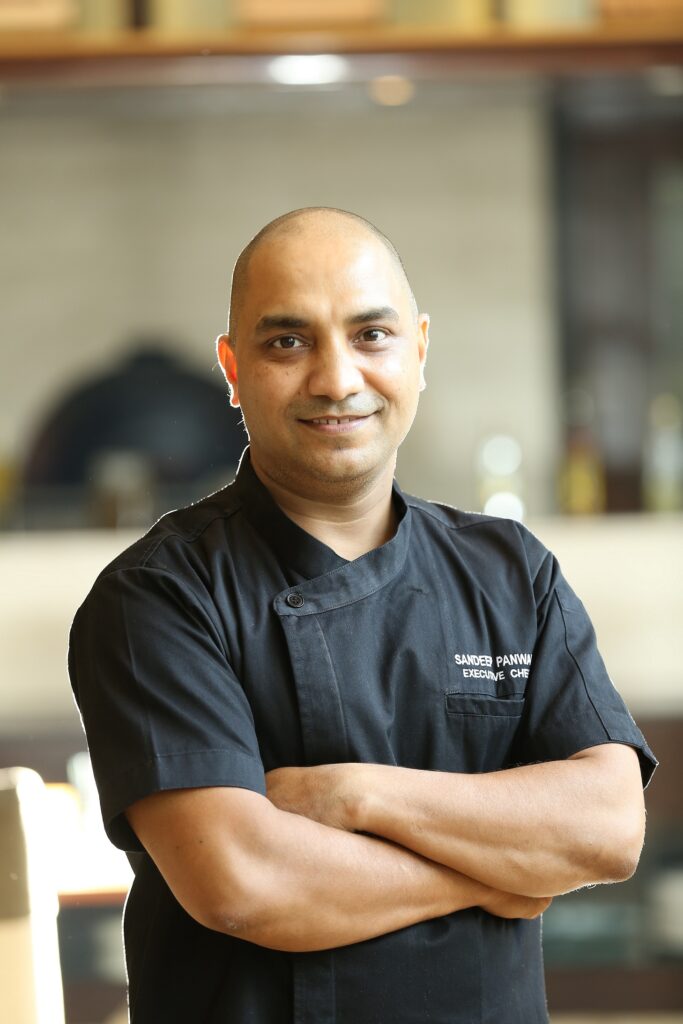
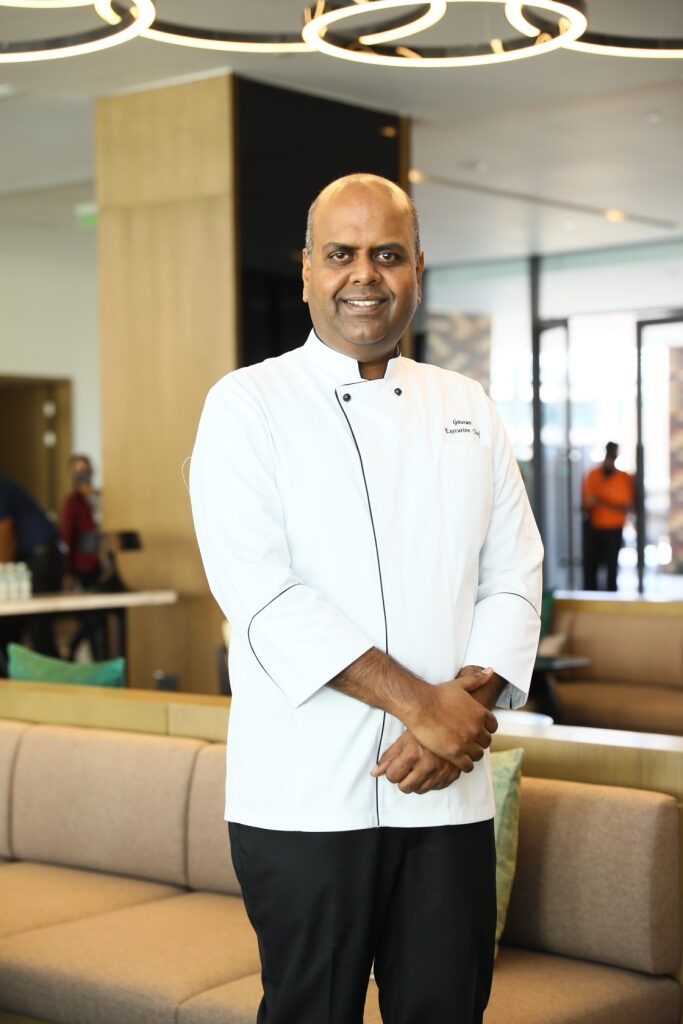
Chef Gaurav Anand
Executive Chef -Hilton and Hilton and Hilton Garden Inn Bengaluru Embassy Manyata Business Park.
This year’s theme is more relevant than ever before as the global hospitality and restaurant industry is at an all-time high post-pandemic. As a professional chef managing a large kitchen operation with my team of chefs that caters to anywhere between 1000 and 3000 people on a busy day, safety features as the highest priority. At Hilton and Hilton Garden Inn Bengaluru Embassy Manyata Business Park, we are guided by our culinary philosophy; Food -Thoughtfully Sourced, Carefully Served. We aspire for our culinary experience to reflect the care and detail that goes into creating flavourful and nutritious food.
We have a dedicated in-house food safety and hygiene lab headed by a certified hygiene manager where we have a robust system of testing, monitoring, and reporting. This enables us to be compliant with all Hilton standard HACCP principle pointers, and FSSAI audit guidelines. Our audits are carried out by an accredited third party. We follow a clear segregation and sanitization system for cooked and raw food including storage, workstations, utensils, chopping boards etc.
As a hotel that has a large and busy banquet operation, we have dedicated bulk cooking kitchens including a separate halwai production area away from the hot gravies sections. We do not use proprietary or premade gravies in our bulk kitchen. As we a have dedicated chef de cuisine for each of our specialities such as South Indian, Marwari, Awadhi etc. with expertise in understanding traditional ingredients and cooking techniques, this not only helps create authentic culinary experiences but also the mindful treatment of ingredients that preserve the nutrition value too.
Last but not least our waste management procedures call for strict waste segregation at source. We completely manage our wet waste in our in-house waste decomposition plant that converts food and plant waste into material into compost.
We believe creating and maintaining very high Food standards is not just about the flavours and food styling, but equally about mindful sourcing, using the right cooking techniques, following best practices in kitchen and food handling and responsible waste management.
Suraj Kumar Sahoo
Executive Chef, Novotel Vijayawada Varun.
Food safety is crucial in ensuring that the food we consume is safe and free from hazards. We at Novotel Vijayawada Varun understand the crucial importance of food safety and standards in our operations. Ensuring that our guests enjoy safe and high-quality food is a top priority for us. We strictly adhere to the guidelines set by the Food Safety and Standards Authority of India (FSSAI) to maintain the highest standards in our kitchen and restaurant.
From the moment our food materials arrive at the receiving bay, we follow FSSAI standards meticulously. This includes implementing chlorine dilutions for vegetable sanitation, practicing Safe
Nutritious Food (SNF) alertness during food reception, and maintaining separate storage areas for different food categories such as vegetarian, non-vegetarian, dairy, and cooked/raw products. We have also taken measures to prevent cross-contamination by establishing separate working stations for vegetarian and non-vegetarian food preparation.
Our commitment to cleanliness and sanitation is unwavering. We prioritize regular cleaning and sanitization to prevent any chances of cross-contamination within our premises. Proper garbage disposal and maintenance are also part of our daily routine, with the segregation of wet and dry waste. To contribute to environmental sustainability, we have installed an organic compost machine that converts our food waste into compost used for our garden and plantation.
When it comes to serving food in our restaurants, we strictly follow FSSAI checklists and standard operating procedures (SOPs) to ensure food safety. Our chefs monitor and record temperatures of cooked and raw food regularly, especially for buffet items, to maintain freshness and safety. Food safety display boards, including hygiene ratings, FSSAI licenses, and allergen awareness information, are prominently displayed in all our food serving areas to provide our valued customers with assurance.
In conclusion, food safety and standards play a vital role in our operations. We believe that adhering to high-quality raw materials, maintaining the authenticity and taste of our dishes, and diligently practicing SOPs are crucial for the success of any food business operator (FBO). We recognize the significance of food standards in ensuring the safety and well-being of our guests, and we are committed to upholding these standards at Novotel Vijayawada Varun.
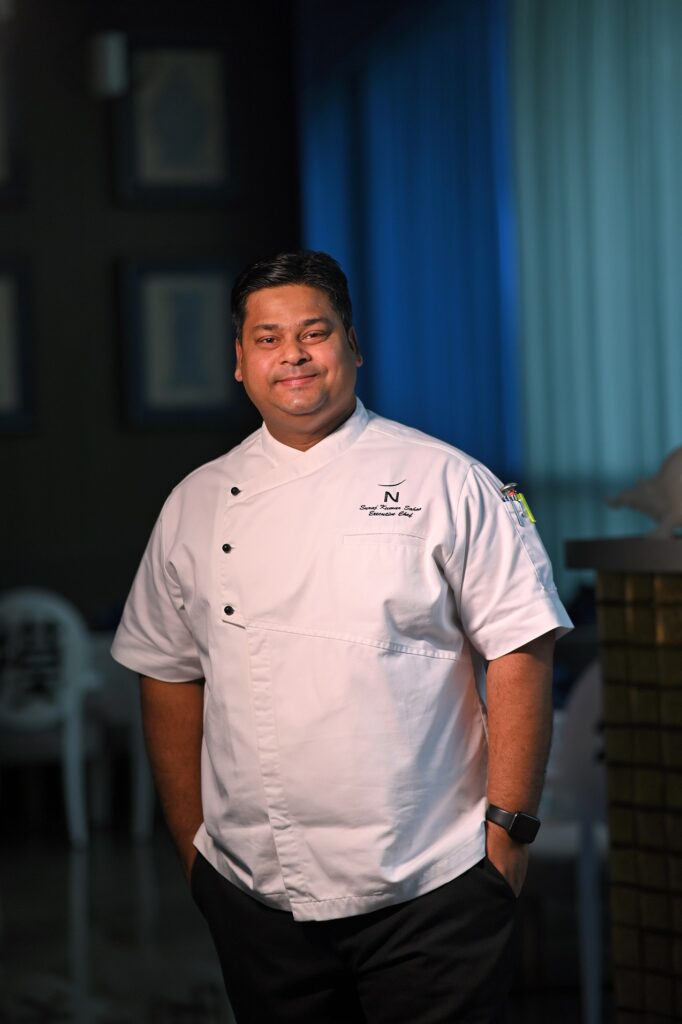
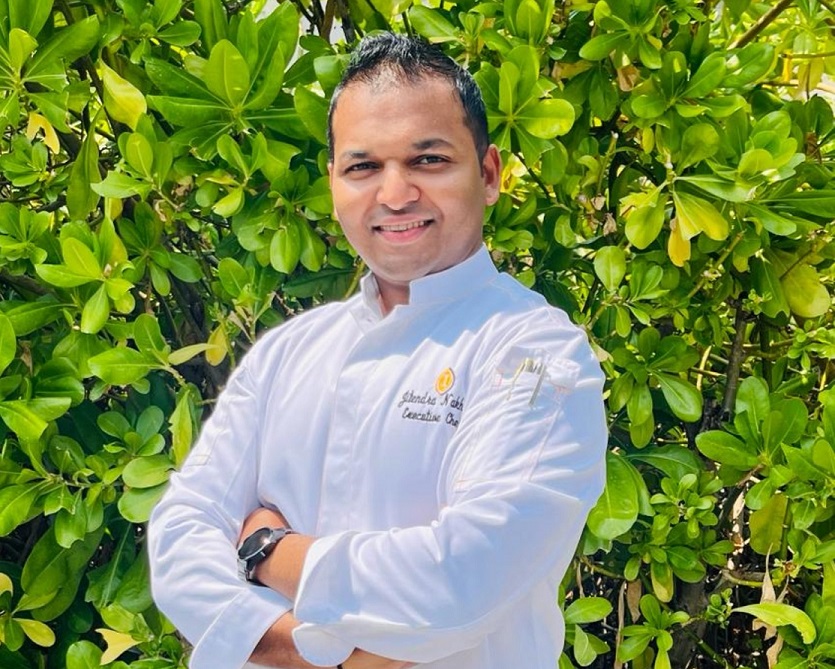
Jitendra Nakhwa
Executive Chef, InterContinental Chennai Mahabalipuram Resort
The commitment to upholding food safety principles remains paramount for chefs particularly those working in the hospitality industry. Maintaining the safety and quality of food can be a formidable task, even for state-of-the-art facilities. Challenges arise, particularly in regions where factors like pests and high temperatures pose significant difficulties. In such environments, controlling pests and ensuring appropriate temperature conditions becomes even more crucial. At InterContinental Chennai Mahabalipuram Resort, dedicated efforts are made to overcome these challenges and implement effective solutions that prioritize food safety and maintain superior quality.
Comprehensive trainings are designed explicitly for chefs and F&B service team, equipping them with the necessary knowledge and skills to prevent foodborne diseases and safeguard the well-being of the resort’s valued guests. These training programs empower the staff with the latest information and best practices, ensuring they are well-prepared to handle potential risks and maintain high standards of food safety throughout their operations.
Regular inspections are conducted at the resort to monitor compliance with food safety protocols and identify areas for improvement. These inspections play a vital role in upholding the resort’s commitment to the highest standards of food safety. By consistently assessing their processes and procedures, the resort ensures that any necessary adjustments are made promptly, further enhancing the safety and quality of the food served.
Guests can enjoy their dining experiences with confidence, knowing that their well-being is safeguarded at every step as stated by the Executive Chef, Jitendra Nakhwa of InterContinental Chennai Mahabalipuram Resort.
ASIF IQBAL
Executive Chef, HolidayInn Chennai OMR
From farm to fork, how safe is your food?
Food safety is everyone’s responsibility. By law, businesses and non-profit organisations must follow food standards to keep people safe from food-related illnesses. Food safety programmes should be implemented by individual companies; individuals, food preparation establishments, and service establishments should also know the specific food risks associated with the kind of food and preparation activity going on.
Did you know?
Microorganisms can multiply very quickly in perishable foods kept at room temperature. One pathogen will become approximately 17 million in just 4 hours. To protect public health and safety, businesses must immediately remove from distribution, sale, and consumption any food found to be unsafe.
How to assure?
ISO 22000 on food safety management systems provides all types of food standard operating procedures to manage the safety of their products and the well-being of their consumers, providing a layer of reassurance within the global food supply chain, helping products cross borders, and bringing people food they can trust. It demonstrates an organization’s ability to control food safety hazards in order to ensure that food is safe.
On the topic of food standards, save food Chef Asif Iqbal (executive chef of Holiday Inn Chennai OMR IT Motorway) said that food safety initiatives are being taken to ensure that the food they serve is safe for their guests. All hotel staff who handle food should be trained on proper food safety procedures, including how to wash their hands, how to prevent cross-contamination, and how to cook food to safe temperatures. Food should be stored at the proper temperature to prevent the growth of bacteria. It should also be kept clean and free of contamination.
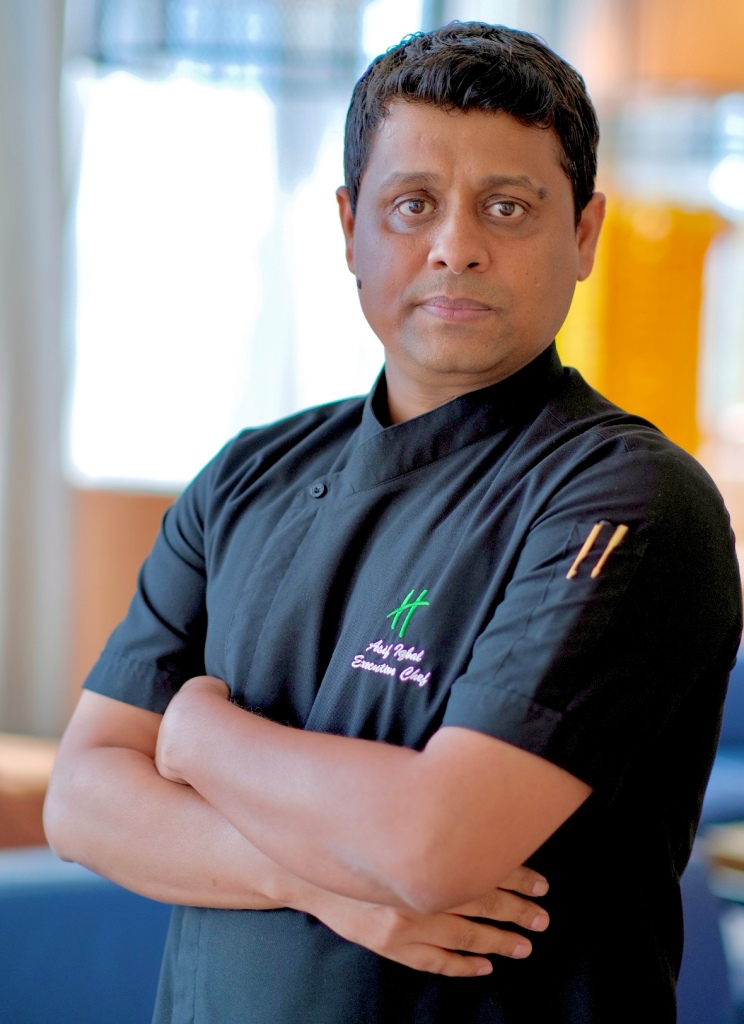

Chef Gopi Nandkumar
Executive Chef, Hyatt Regency Pune
Hyatt Regency Pune, a leading name in the hospitality industry, is going above and beyond to celebrate and promote sustainability this World Environment Day. With a series of thoughtful initiatives, the hotel is actively engaging its colleagues to contribute towards the wellbeing of the environment.
One of the standout activities is the “Commitment Board,” where colleagues are encouraged to write down their personal commitments towards environmental conservation. After a month, the hotel will recognize and appreciate those who have successfully maintained their commitment, fostering a sense of responsibility and collective action.
Another engaging activity is the “Poster Making for Departments.” Each department is given the opportunity to showcase their creativity by designing posters highlighting environmental themes. This exercise not only raises awareness among the colleagues but also serves as a visual reminder of the hotel’s dedication to sustainable practices.
In a remarkable display of eco-consciousness, Hyatt Regency Pune is organizing a plantation drive within the hotel premises. Colleagues from various departments will contribute by creating planters from waste materials found in their respective areas. For instance, the HR department utilizes waste paper to create planters using paper mache and plant saplings in them, placing them on their desks. This innovative approach not only repurposes waste but also adds a touch of greenery to the work environment.
Hyatt Regency Pune’s initiatives for World Environment Day are a testament to their unwavering commitment to sustainable practices. By engaging colleagues, fostering a sense of ownership, and creatively repurposing waste materials, the hotel sets an exemplary standard for the hospitality industry in the pursuit of environmental well-being.
Pawan Kumar
Executive Chef, Aloft Bengaluru Outer Ring Road
These are few measures that are maintained at hotel to ensure food standards-
- Maintain the Hot food holding temperature 65% and above.
- Daily handwashing practice every 25 minutes.
- Reheat food 75% and above.
- Maintain dishwasher machine temperature 72% and rinse at 82% and above.
- We follow the Hot Holding & Cold holding method to maintain the food quality.
- We follow the colour coded chopping board to avoid the cross contamination.
- We follow the Daily receiving checklist.
- We maintain daily cooking & reheating form.
- We take buffet temperature twice a meal period to ensure hot food is hot and cold food is cold.
Food safety & hygiene is one of the most important aspects of the F & B industry. We train our new as well as old team members from time & again on these standards to ensure that hygiene & safety are maintained on top priority. Particularly after the covid period, hotels have rolled up their sleeves and left no stones unturned to ensure that this tops the priority list for kitchen & service staff. Food handlers training, regular health check-ups, temp control etc. are a few more steps taken in consideration. As an executive chef, handling a team, I bestow a lot of responsibility when it comes to food standards and guest satisfaction.

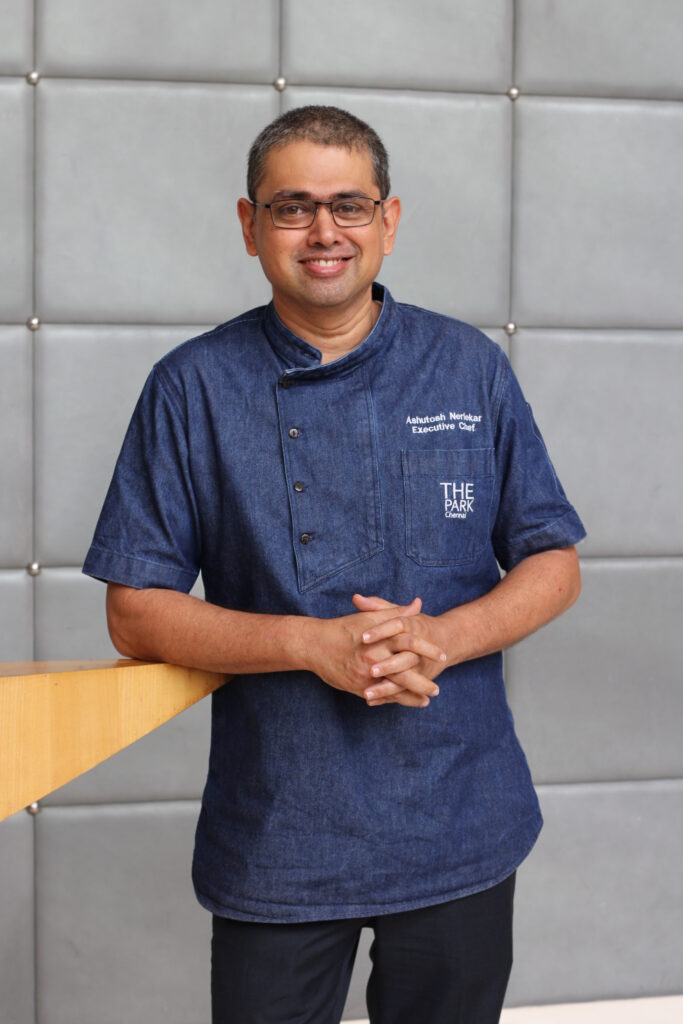
Ashutosh Nerlekar
Executive Chef of THE Park Chennai
As Hotels, it is very important to comply and adhere to all Food Safety standards and laws to ensure we serve safe, healthy and nutritious food to all our guests. It is key to ensure these practises are followed and that there is enough emphasis and on their standards to prevent contamination and spread of foodborne illnesses – imparting this knowledge helps in handlers identifying what could endanger the stability and integrity of the food. Awareness among all food handlers is of utmost important, so that there are no compromises made. At THE Park Chennai, we have detailed and regular food hygiene audits in adherence to FSSAI standards and systematic records maintained to ensure compliances and regulations followed through the entire supply and food chain. There are also food and water sample checks as per the prescribed schedule. Medical tests of all food handlers is also done on a yearly basis in compliance with these standards.
We also have comprehensive training programmes and internal audits covering all facets of the Food and Beverage department to detect any deviations from the standards processes which also include Engineering and Housekeeping records with reference to the Food & Beverage department.
Jnana Ranjan Panda
Regional Executive Chef, The Orchid Hotel Pune
In the realm of culinary expertise, I understand the pivotal role that food plays in the hospitality industry. With an unwavering commitment to food safety, my team and I go above and beyond to ensure that each dish is prepared and served with the same care and love as a mother would for her children.
I firmly believe in putting the well-being of guests first. Understanding that food allergies can be a serious concern, our team takes proactive measures to address this issue. Signage boards prominently displayed in the restaurant inform guests about potential allergens, ensuring they can make informed choices and avoid any ingredients that may cause adverse reactions. This thoughtful approach demonstrates a deep understanding of the importance of guest safety and comfort.
To maintain impeccable food safety standards, I personally select the raw materials used in kitchens. Our meticulous approach involves careful scrutiny of suppliers, ensuring that only the finest and freshest ingredients find their way into the kitchen. By exercising this level of control, we can guarantee the quality and safety of the final dishes, elevating the dining experience for our guests.
I understand the importance of continuous learning and improvement. So I keep myself and my team updated on the latest industry standards, regulations, and practices to enhance the overall safety and quality of the dining experience. By staying informed and embracing ongoing training, we ensure that the team is well-equipped to maintain the highest food safety standards.
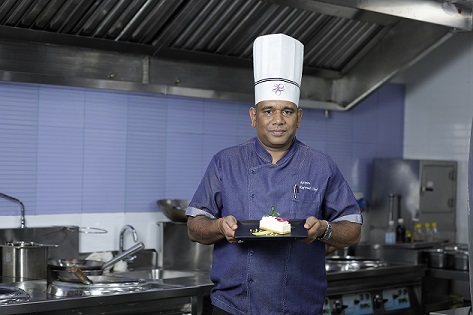
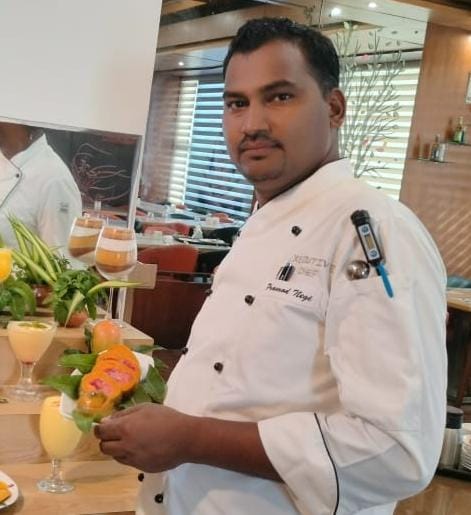
Pramod Singh Nagi
Executive Chef, Lords Inn Somnath
In the event of World Food Safety Day on 7 June 2023 will draw attention to food standards. Food borne diseases affect 1 in 10 people worldwide each year, and food standards help us ensure what we eat is safe said Pramod Singh Nagi, Executive Chef, Lords Inn Somnath. More than 600 million people fall ill and 420 000 die every year from eating contaminated food. The Idea behind world food safety day is to make people aware about cook & healthy food
There are 04 primary steps one should follow to ensure no cross contamination of food-:
- Clean: Wash Hands, Utensils, and Surfaces Often
- Separate: Don’t Cross Contaminate. Use separate cutting boards and plates for produce, meat, poultry, seafood, and eggs
- Cook to the Right Temperature: Food is safely cooked when the internal temperature is high enough to kill germs that can make you sick
- Chill: Refrigerate and Freeze Food Properly. Refrigerate perishable foods within 2 hours
Kishan Gunjal
Executive Chef, Sayaji Hotel Kolhapur
Let’s start by establishing the basics of food related matters, i.e. Washing your hands, cleaning your kitchen appliances and preparing meals at the correct temperature, all good practices with regards to food safety. In addition, it is necessary to check and read the labels of food products prior to use in order to determine what ingredients the product contains and how to cook them.
Food standards are a way of ensuring safety and quality. It provides guidance for farmers and processors with regard to handling of food. They lay down the levels of additives, contaminants, residues pesticides and veterinary drugs products that can be safely ingested by all. In addition, the methods for measuring, packaging and transporting food in order to ensure its safety are specified by standards. Consumers can be sure that the product/food are good for them, by applying standards in areas such as nutrition and allergen labelling.
We are organising many activities to improve and create awareness of FOOD STANDARD & FOOD SAFETY. For example-
1. Making a video for how we start our basic daily routine in the kitchen.
2. We’re always testing and updating our knowledge about food on a regular basis.
3. Organizing a run, walk or dance to promote food safety. Fitness is an excellent way to get people involved in their communities for a cause.
4. If you are working in production, serving or selling food, take the opportunity to reinforce the food safety culture at work and celebrate your achievements.
5. Invite people who grow, process, sell or cook food to talk about or demonstrate what they do and why food safety is important.
6. Bring people together to discuss this year’s theme. Follow the discussion with a question-and-answer session to provide tips to a virtual or in person audience.
7. Art can inspire action and bring about lasting change. Compose a song, create a dance, write a poem or draw a picture.
8. Raise awareness and encourage actions that can help to ensure the safety of their food. Influence your network to achieve safer food for better health.
9. At last we can conclude that this whole content about Food safety is everyone’s business and individual responsibility. No matter who you are or what you do, you play an important role in making sure food is safe to eat.

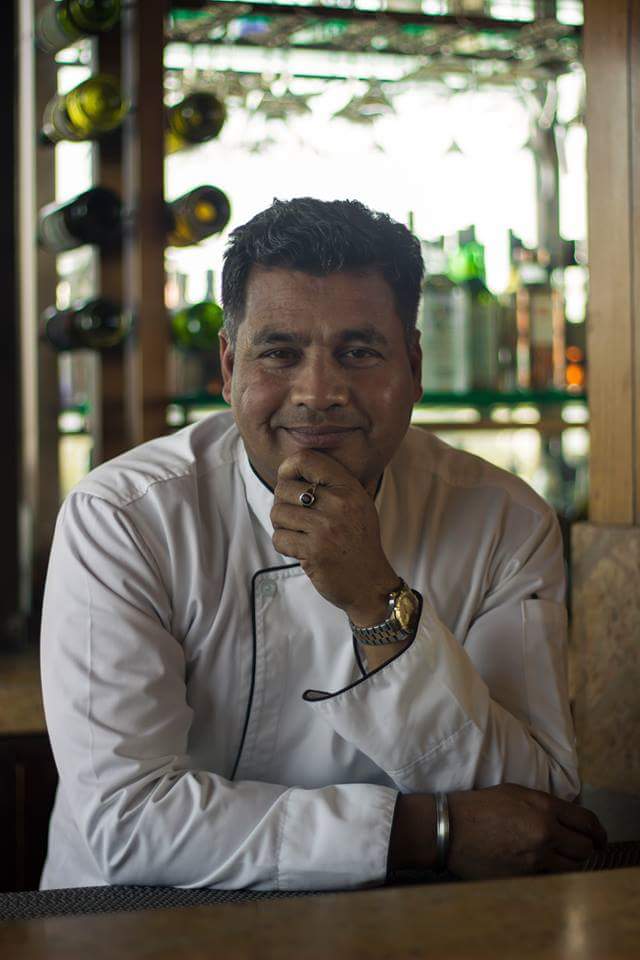
Chef Abhijit Dey
Sr. Executive Chef, Seven Seas Hotel
Food is one of the major necessities for a human being to survive. At Seven Seas Hotel, we ensure well-being and satisfaction of guests. All members of the food supply chain at our hotel play a role in maintaining food safety. It includes maintaining high standards of food safety guidelines and regulations. Safety measures such as proper handling, storage, and preparation of food as well as maintaining cleanliness and hygiene in kitchen areas. Regular inspections are conducted to prioritise employee well-being by offering health programs and medical check-ups.
Effective food standards and control systems are required to integrate quality into every aspect of food production and service at the hotel. So, food standards are playing a major role in our daily life by keeping us healthy and wealthy. Everyday routine food standards, our team follows protect guests and employees from different unwanted diseases. Those are:
GOLDEN RULES OF FOOD SAFETY AT SEVEN SEAS HOTEL
- Keep all kitchen surfaces meticulously clean.
- Wash your hand rapidly during entire cooking process and before starting cooking.
- Separate raw and cooked foods.
- Cook thoroughly.
- Keep food at safe temperature.
- Use safe and fresh raw materials.
- Use clean water.
- Protect food from insects, rodents, and other animal.
- Keep food covered.
- Use tongs or spoons to pick up food (one for each kind of food
Chef Mahesh Ramasamy
Executive Chef Angsana Oasis Spa & Resort
At Angsana Oasis Spa & Resort, We firmly believe that food standards save lives, and that is why we go above and beyond to prioritize the safety and well-being of our guests. Our team is well-trained in food safety protocols, including proper hand hygiene, storage practices, and temperature control. We regularly conduct comprehensive audits to assess our compliance with these standards and continuously improve our processes.
Our dedicated team of chefs and kitchen staff undergo regular training on food safety protocols and are well-versed in best practices to prevent any contamination or foodborne illnesses.
Furthermore, we work closely with trusted suppliers who share our commitment to food safety. We carefully source our ingredients and ensure that they meet the highest quality and safety standards before they are used in our kitchen.
Rest assured, we prioritize the well-being and safety of our guests, and we continuously strive to provide a memorable dining experience in a clean and safe environment.


Prakash Nayak
Group Executive Chef, Niraamaya Wellness Retreats & Business Group
For us, the kitchen is not merely a space to create delectable dishes; it is a sanctuary where we channel our passion for culinary artistry and embrace the responsibility of safeguarding our guest’s health. We firmly believe that the food we consume has the power to transform lives and shape destinies. It is not just fuel for the body but a conduit for vitality and a source of profound joy.
From the selection of ingredients to the final presentation on the plate, we leave no stone unturned in upholding the highest standards of quality, safety, and sustainability.
In our kitchens, we strive to create an environment that celebrates the natural bounty of the earth. We embrace the rhythms of the seasons and utilize fresh, organic produce to craft dishes that burst with vibrant colours and robust flavours. Each ingredient is selected with care, ensuring that it is free from harmful chemicals and additives. We believe that nature provides us with an abundance of nourishment, and it is our duty to honour its gifts and preserve its integrity.
Our commitment to food standards extends far beyond the walls of our kitchens. We meticulously follow hygiene protocols to ensure that your dining experience is not only pleasurable but also safe. We adhere to rigorous quality control measures, constantly striving for excellence and raising the bar for ourselves. The well-being of our guests is at the forefront of our minds as we create culinary masterpieces.
“Food Standards Save Lives” is not just a motto to us; it is a way of life. It is a reminder that our role as chefs goes beyond the confines of the kitchen. We have the privilege of touching lives, igniting passions, and inspiring positive change through the art of food. By adhering to the highest food standards, we not only safeguard health but also contribute to a world where sustainable practices and responsible choices become the norm.
 English
English French
French German
German Italian
Italian




